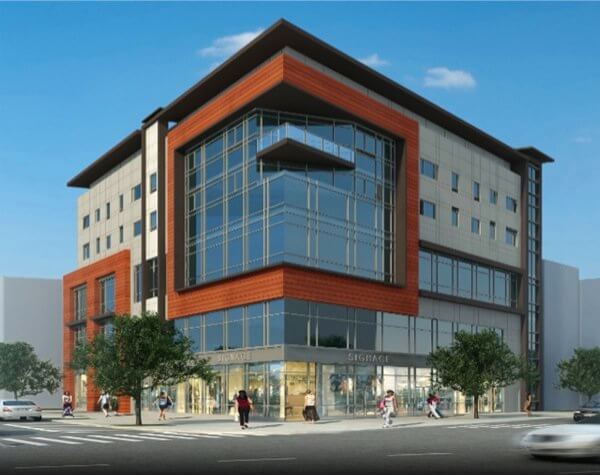A new bill being introduced by Maspeth-based Assemblyman Brian Barnwell will address concerns of housing developments that label units as “affordable” when when the surrounding community disagrees — a trend which has made itself apparent across the city.
Barnwell’s bill, if enacted, will give community boards the power to say stop developers seeking Uniform Land Use Review Procedure (ULURP) applications to build above current zoning laws if the affordability of the units do not meet at least 60 percent the area median income (AMI).
“We have a situation throughout the city, not just in our district, where you have developers who want to up-zone to build high-rise luxury condos. They say they’re going to provide affordable housing, but they don’t, so they community boards vote them down,” Barnwell said. “Every single time [community boards] vote them down, through the ULURP process that we have now, it gets approved … The bill that we put in place, anytime a developer wants to rezone property that will offer units that are 60 percent of AMI or higher, if the community board votes that down, the project is done.”
Barnwell admits that 60 percent of AMI is still well above what the average resident in many communities can afford, but its a start.
Widely discussed by candidates for state office in the 2018 election cycle, one problem with affordability was identified in how AMI is generally calculated to take into account the cashflow of residents across the region instead of by ZIP code.
“If the community board votes it down, they should not be able to build,” Barnwell added. “If developers want to build 40 percent of AMI and actually provide affordable housing, then the normal ULURP process applies.”
Currently, if a builder submits a ULURP application, it generally goes to a land use committee vote before a full board meeting. This only counts as an advisory vote, however, and may not have influence over the final decision with the City Planning Commission.
In September, a development under construction at the time was listed on NYC Housing Connect, a portal for low income New Yorkers to find apartments that meet affordability standards, that require potential renters to meet an income of $77,178 to $122,070.
A one-bedroom apartment could cost a tenant up to $2,251 per month.
The bill is keeping with Barnwell’s re-election campaign platform, in which he said he would work to address the AMI issue at the state level and keep his district, which covers Woodside, Maspeth as well as parts of Astoria, more affordable in the face of gentrification.
The Elmhurst community faced off with developers Sun Equity and Heskel Group who had filed a ULURP application with the city in March 2018 to build 13 stories of affordable units at an 82nd Street lot, above the 10 stories allowed as of right under the zoning.
About 40 percent of the units in the Elmhurst proposal were projected to meet an annual median income of $61,000 which was later lowered to $41,000 by the developer after the application was struck down by Community Board 4’s advisory vote.
Queens Neighborhoods United opposed not only the housing which they claimed would displace many people in the surrounding communities, but they are still fighting against the Target slated for the retail section of the development, even after the builders abandoned the effort to construct any housing.
The organized opposition to the Target was continued by state Sen. Jessica Ramos who took the developer to the New York Supreme Court on Jan. 10 on grounds that the zoning laws prohibit big box stores, saving space for only small, local owned businesses.
Currently in the drafting phase, Barnwell hopes to introduce the bill in the coming months.



































